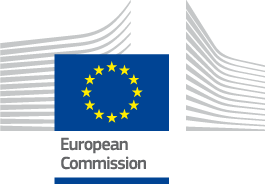Identifying the appropriate user profile
| READ IN FRENCH | READ IN GERMAN |
In order to ensure a proper use of procurement templates, it is important for the CA to identify the appropriate users within the government team responsible for crafting and utilising the documents. This guideline provides role-based guidance to this purpose.

1. Who are these templates for?
The templates are designed to be used by different types of Contracting Authorities, according to the national procurement legislations, which may include centralised procurement authorities, local and regional authorities, central governments, local governments associations, State owned enterprises, among others.
2. Who and how can use the templates and guidelines?
The procurement templates and guidelines can be utilised by different user profiles within the European communities, based on the merchandise group/spend category with their specific roles and responsibilities. Depending on the specific objects of procurement and the different templates sections, different users can be involved in the use and customisation of the templates based on the area of expertise, as described as follows.
Department heads and elected officials (Chief Innovation, Chief Digital or Chief Technology Officer, Security Manager, International Affairs Manager, Smart City Manager or similar)
Due to their strategic role, are involved in the visioning and supervising all the sections of the templates, especially the parts related to strategic and decision-making capacity of the city and their specific needs.
If the City needs more detailed information, insightful guidelines that can orient these thematic experts are:
- Guideline on needs identification (link to G05 will be included within the Helpdesk)
- Guideline on Innovation procurement (link to G09)
- Guideline on EU Support and Finance (link to G15)
Thematic experts (IT Specialist, Data Analyst, Data Security Experts, Legal experts)
As thematic experts such as Innovation Manager, International Affairs Manager, they are fundamental to be involved in the initial phases of the procurement process, in particular in identifying the procurement need and tailoring the technical specifications of the item to be acquired.
Relevant template sections that can be read and tailored by thematic experts are:
- Evaluation and award: evaluation and Awarding offers;
- Form and content of submissions: personal data processing;
- Technical and Functional requirements.
If the City needs more detailed information, insightful guidelines that can orient these thematic experts are:
- Guideline on Technical specifications interpretation and tailoring
- Guideline on Compliance with MIMs, standards, specifications and certifications
- Guideline on Effective procurement evaluation processes and negotiation
Procurement experts (IT procurement officers, public procurement officers, infrastructure providers, etc.)
The role of the procurement team is crucial in the selection of the template for the item to be procured and in the customisation of the procurement-related clauses of the documents.
Relevant template sections that can be read and tailored by procurement experts are:
- The European Law is compliant with the National Law: adapt the templates to the provisions of the national laws implementing Directive 2014/24/EU;
- The place of performance;
- The nature of the contract;
- The duration of the contract (options and renewals);
- The evaluation criteria (Exclusion and selection criteria);
- The possible subcontracting;
- The form and content of the submissions.
If the City needs more detailed information, insightful guidelines that can orient these thematic experts are:
- Guideline on How to use templates and guidelines
- Guidance on selection of objects of procurement and templates
- Guideline on Criteria and considerations to use the templates
3. What if my community doesn’t have the users below?
In case your community doesn’t have digital experts or specialists in this field, it is sufficient to involve the officers that usually carry out the procurement in your organisation, even in a different sector, and the officers that commonly address technical and technology-related initiatives. The structure of these templates ensures that anyone with procurement knowledge can successfully manage the process. Moreover, the templates are designed to follow a standardised model aligned with the European Union’s procurement framework, and they have been simplified specifically for the purchasing of objects of procurement related to the development of LDTs or LDPs.
